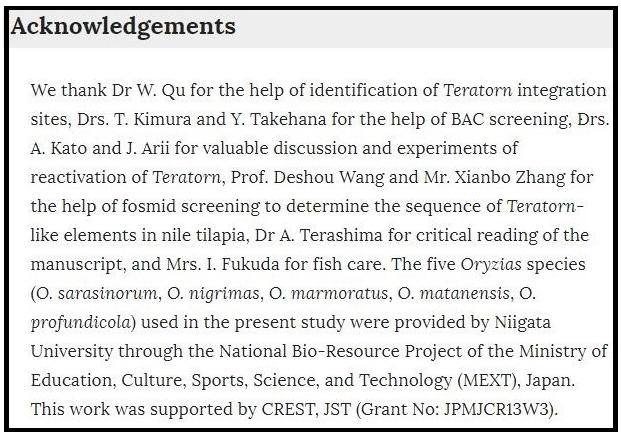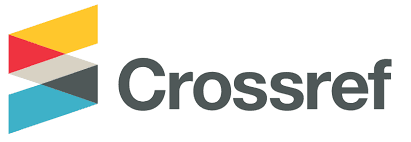How to Cite Funding in research
Funding is a crucial part of any researcher’s career, particularly in academia. Funding, like many jobs, takes a long time to obtain. This is true for writing and individual funding grants, and for the amount of grant proposals required to secure funding. Funding can come from many sources, including research councils, charities, governing bodies and from industry. It isn’t always obvious for people outside of the research group to know where the research money has come from.
This leads to two questions:
- How does a reader know where your funding has come from (if this is of interest to them)?
- How does a funding body know which grants of theirs have been used to deliver successful publications?
The answer lies in two areas which are covered in this article:
- The acknowledgements section of a paper
- The Funder Registry
Citing funding in the Acknowledgments section of a paper
Here, we look specifically at how to cite funding in an academic paper. Although not all people cite their specific funding in a paper, many do; and there is a common way to express it in your manuscript.
In an academic paper, it is common to include these elements:
- The funding body written out in full.
- The grant number in brackets.
- Multiple grant numbers separated by commas and spaces.
- Agencies, separated by semi-colons.
Below are some examples of how the funding should be acknowledged in an acknowledgements section. The first is a template for one funding body, the second is a template for multiple funding bodies, the third is a template for multiple grants from a single funding body and the fourth is a real example of an acknowledgements section of a paper from Nature Communications
1. This work was supported by Charlesworth Author Services (insert grant number).
2. This work was supported by Charlesworth Author Services (insert grant number); The Editing Committee (insert grant number); The Academic Editing Charity (insert grant number).
3. This work was supported by Charlesworth Author Services (insert grant number 1), (insert grant number 2), (insert grant number 3).

Note that it is important to check the Notes for Contributors of your target journal for specific guidelines, and also look at examples of previously-published articles to use as models to follow
Using the Funder Registry (FundRef)
The Funder Registry, commonly known as FundRef, is a publication project initiated by CrossRef to help distinguish who has funded research projects and who has been in receipt of funding. The Registry is donated by Elsevier and is updated monthly to keep an up-to-date record of research funding. Existing entries in the database are also constantly reviewed to make sure that they are still relevant, accurate and up-to-date. Overall, the Funder Registry allows for the easy tracking of funding, especially because funding sources are not always reported in academic publications and funding bodies are forced to mine data to find which publications have come about as a result of their grants.
The Crossref Funder Registry is a self-proclaimed “veritable who’s who of funders worldwide” and “a unique taxonomy of grant-giving organizations”.

There are many reasons why people should publish their successful funding grants into the Registry, and these include:
- Enabling funding organizations to easily track published results arising from their grants
- Allowing research institutes to monitor the publication output of their researchers
- Allowing publishers to analyze the funding sources for their authors
- Allowing publishers to ensure compliance with funder mandates
- Enabling the public and reader base to benefit from the transparency on the funding source and the results of the funding.
So, how does the Registry work? And how can you participate in it? These are two questions which are common, but easily answered.
The researchers standardize the metadata of the funders who backed the research and send it over to Crossref, who make it openly available through their funding data search and API. The Funder Registry is also based on Elsevier's Research Intelligence's SciVal Funding.
Upon submission, the authors or publisher are asked to gather funder names, grant numbers, funder IDs and add their metadata to the submission. Once in the database, funders can use the system and input their name into the two searches mentioned above and see which publications have come about as a result of the funding.
So, who is involved with the Funder Registry? As with any reputable database, it is the dataset of organizations included within the database that give it its prestige. To date, there are many organizations and large publishers, including:
- American Institute of Physics (AIP)
- American Psychological Association (APA)
- Elsevier
- Institute of Electrical and Electronics Engineers (IEEE)
- Nature Publishing Group
- Oxford University Press
- Wiley-Blackwell
- United States Department of Energy (DOE)
- United States National Aeronautics and Space Administration (NASA)
- National Science Foundation and Wellcome Trust (formerly Wellcome Trust)
Sources:
Wellcome Trust: https://wellcome.ac.uk/funding/managing-grant/research-publication-acknowledgement-practice-guidance-authors
Michigan Population Studies Centre: https://www.psc.isr.umich.edu/research-supp/acknowledge-grants.html
Inoue Y., Saga T., Aikawa T., Kumagai M., Shimada A., Kawaguchi Y., Naruse K., Morishita S., Koga A., Takeda H., Complete fusion of a transposon and herpesvirus created the Teratorn mobile element in medaka fish, Nature Communications, 2017,8:551
CrossRef: https://www.crossref.org/services/funder-registry/
Elsevier: https://www.elsevier.com/research-intelligence/research-initiatives/fundref
Maximise your publication success with Charlesworth Author Services.
Charlesworth Author Services, a trusted brand supporting the world’s leading academic publishers, institutions and authors since 1928.
To know more about our services, visit: Our Services